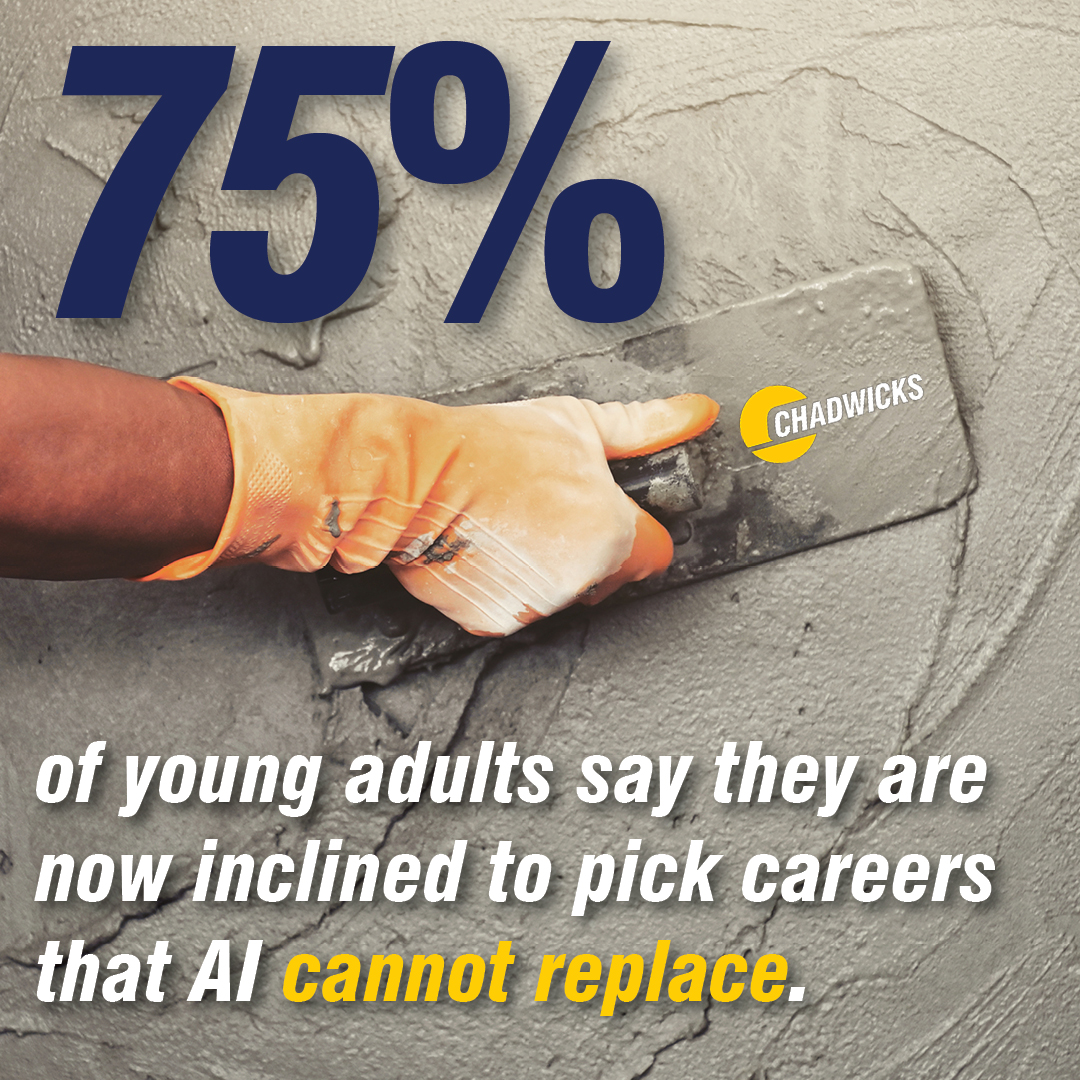
6 out of 10 young adults are worried that AI will impact future job opportunities
New research from Chadwicks Group reveals how AI is influencing future career choices
Key findings
· 61% of 16–24-year-olds are worried that AI will impact their job opportunities in the future.
· Three quarters (75%) say they are inclined to try and select a career that cannot be replaced by AI
· Both parents and young adults believe medicine, teaching and construction are the jobs least likely to be impacted by AI
· Almost 3 in 4 parents (73%) would prefer their child to find a career path that is not replaceable by AI
· Almost half of parents (48%) believe having a skilled trade is one of the careers least likely to be impacted by the adoption of AI
A new survey by Chadwicks Group, Ireland leading builders’ merchants reveals that six out of ten (61%) young adults aged 16–24 are worried that AI will impact future career opportunities, and three quarters say that they are inclined to select a field that cannot be replaced by AI.1
The research was carried out among 200 young adults aged 16-24 and 250 parents to examine attitudes to the rise of AI and its role in shaping future career choices.
According to the Chadwick Group study, almost three quarters (73%) of parents would prefer their child to choose a career path that is not replaceable by AI and over a third (37%) are concerned it will reduce the number of jobs available to their children in the future. Another key concern for parents is the impact of the technology on their child’s imagination and creativity. A fifth (22%) worry it will impact their ability to generate original ideas (22%) and 18% fear it will stifle creativity.
With AI being implemented across a broad range of sectors, both parents and young people believe there are some industries that are least likely to be affected. Almost half of parents (48%) and 38% of young adults believe that working in construction and having a skilled trade is not replaceable by AI. Medicine and teaching also appear to be considered future proof with 52% of parents and 41% of 16–24-year-olds citing medicine as an irreplaceable field, while 38% of parents and 40% of 16-24-year-olds think teaching roles will not be replaced.
While both cohorts surveyed have concerns around AI and its impact on future careers, both groups believe AI will have a positive impact on the future overall with 42% parents and 59% of those aged 16-24 sharing this view.
Commenting on the findings of the research Patrick Atkinson, CEO, Chadwicks Group said:
Our research reveals that both parents and young people have concerns about the impact of AI on future careers with almost 3 in 4 parents (73%) wanting their child to find a career path that is not replaceable by AI. Similarly, 75% of 16–24-year-olds say they are inclined to try and select a career that cannot be replaced by AI. These trends are reshaping how we think about work and have, in my view, opened the door for skilled trades to emerge as a secure, future-proof alternative.
At Chadwicks Group, it is critical to us that we use our profile within the industry to foster growth in the construction sector. Tradespeople are the backbone of our economy, building the homes, schools, and infrastructure that our society depends on.
We have a variety of initiatives in place to support more young people entering construction. We have a scholarship programme with the Faculty of Engineering and Built Environment at TU Dublin as well as a partnership with the University to support the construction of the new state-of-the-art Centre, which will redefine and revolutionise the teaching and learning of Architecture, Engineering and Construction (AEC) in Ireland. We also plan to announce further initiatives to support apprentices in the trades in the coming months.”


